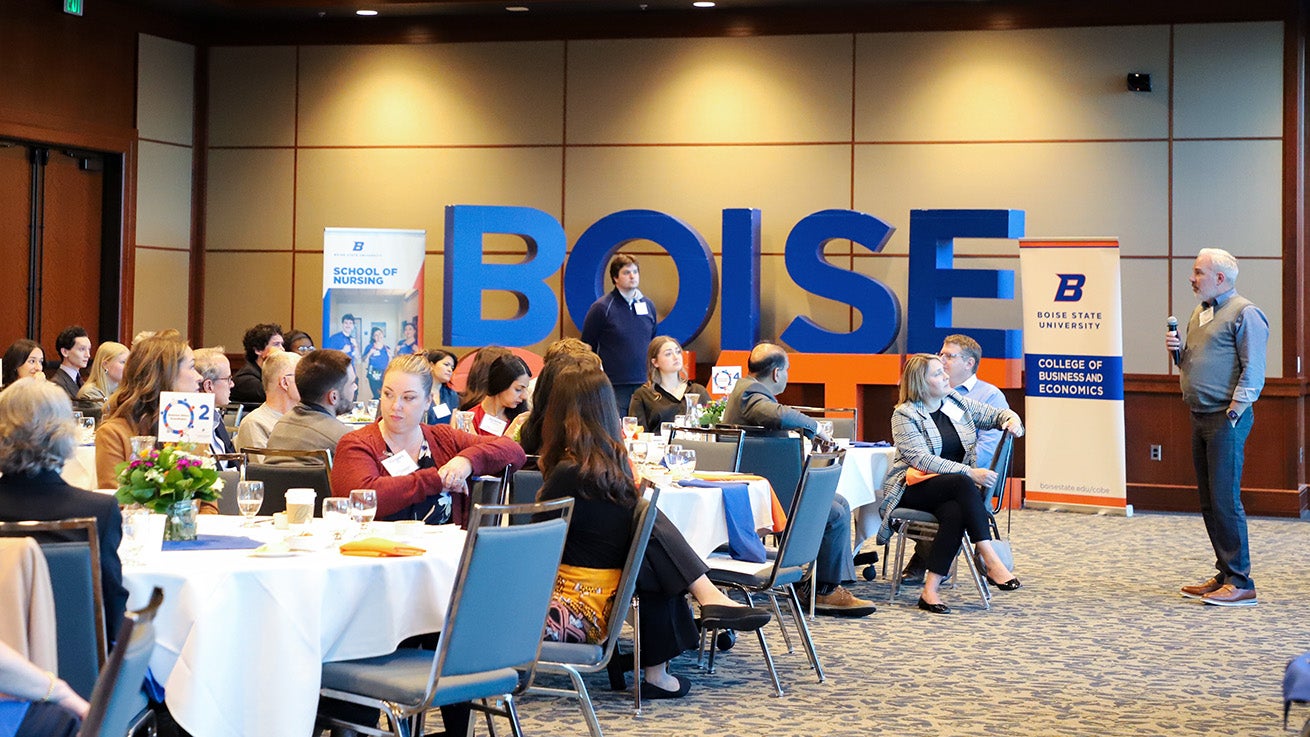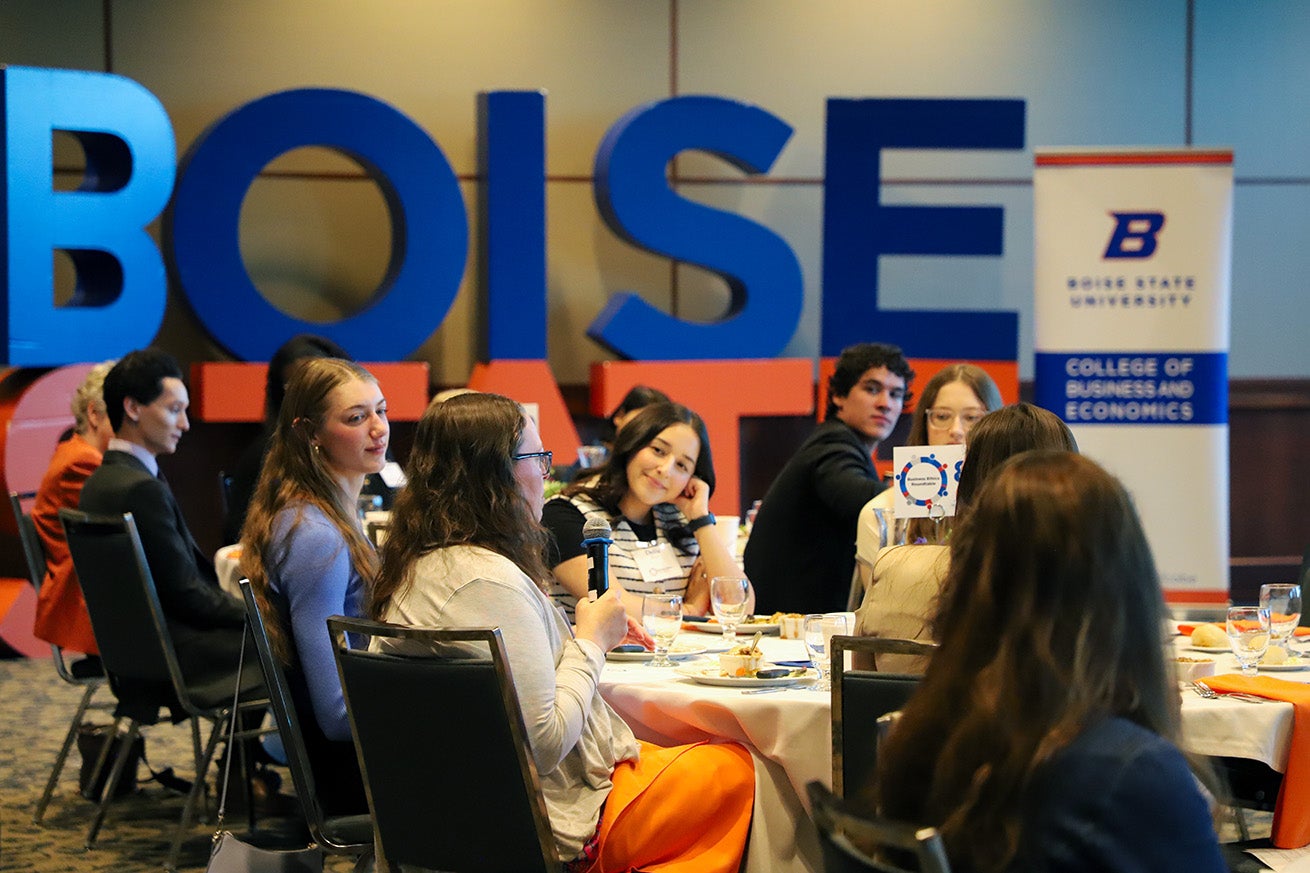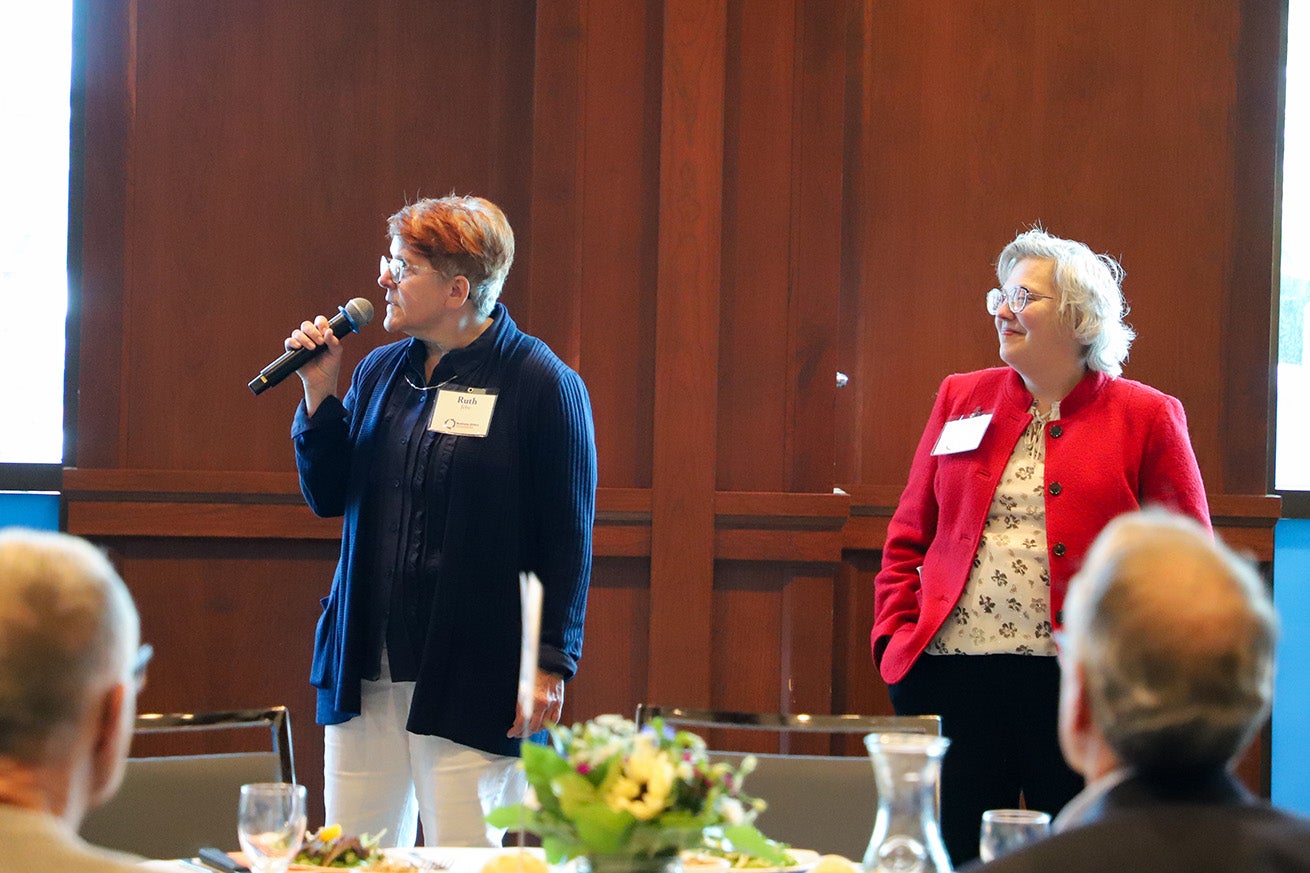
There’s nothing quite like the power of a good discussion.
When professor Amy Spurlock stepped into the role as JoAnna “Jody” DeMeyer Endowed Chair for Nursing, she embraced the opportunity for interdisciplinary collaboration. Like many other fields, healthcare issues reach beyond the scope of one profession or area of expertise. Spurlock saw an ideal opportunity to collaborate with the College of Business and Economics on a real-world issue relevant to both fields through a roundtable discussion.
Spurlock partnered with Ruth Jebe, associate professor and the Robert V. Hansberger Chair of Business Ethics in the College of Business and Economics, to organize a roundtable on April 3. Jebe has hosted several of these events since she stepped in as chair in 2022.
The discussion format allows scholars and community members of differing academic areas to share their unique perspectives, glean insights from others and, together, shape ideas for the future.

Adrian Wengert, vice president of supply chain and procurement at St. Luke’s Health System, presented a case study to attendees. This served as a springboard for conversation among faculty, students and other members of the community.
“The goal isn’t to solve the world’s problems, but to get the discussion going and connect people,” said Jebe. When she first began these roundtable events, her aim was to focus less on individuals’ expertise and more on encouraging dialogue.

The emphasis on dialogue was a major takeaway for participants at this most recent event, as well. Many commented on the need to foster effective communication at every level of a supply chain.
Casey Blizzard, operations coordinator in the College of Health Sciences Simulation Center, said she considers simulation a “really exciting way to learn and exciting way to teach.” But she also told attendees that “the magic of simulation is because of the communication. It’s not because of the equipment or the scenarios. It’s because you’re teaching people how to communicate, and when you focus on that, you have a path forward.”
“We tend to think of business as inherently competitive,” Jebe said. Her charge was, instead, to “try to do some group problem-solving, instead of forcing every business, every hospital, every nurse, everyone to try to solve everything on their own.”
Spurlock also acknowledged that nurses often never discuss the business side of their work, such as supply chain management. “So having these conversations is valuable,” she said. “I hope it was eye opening for everyone.”